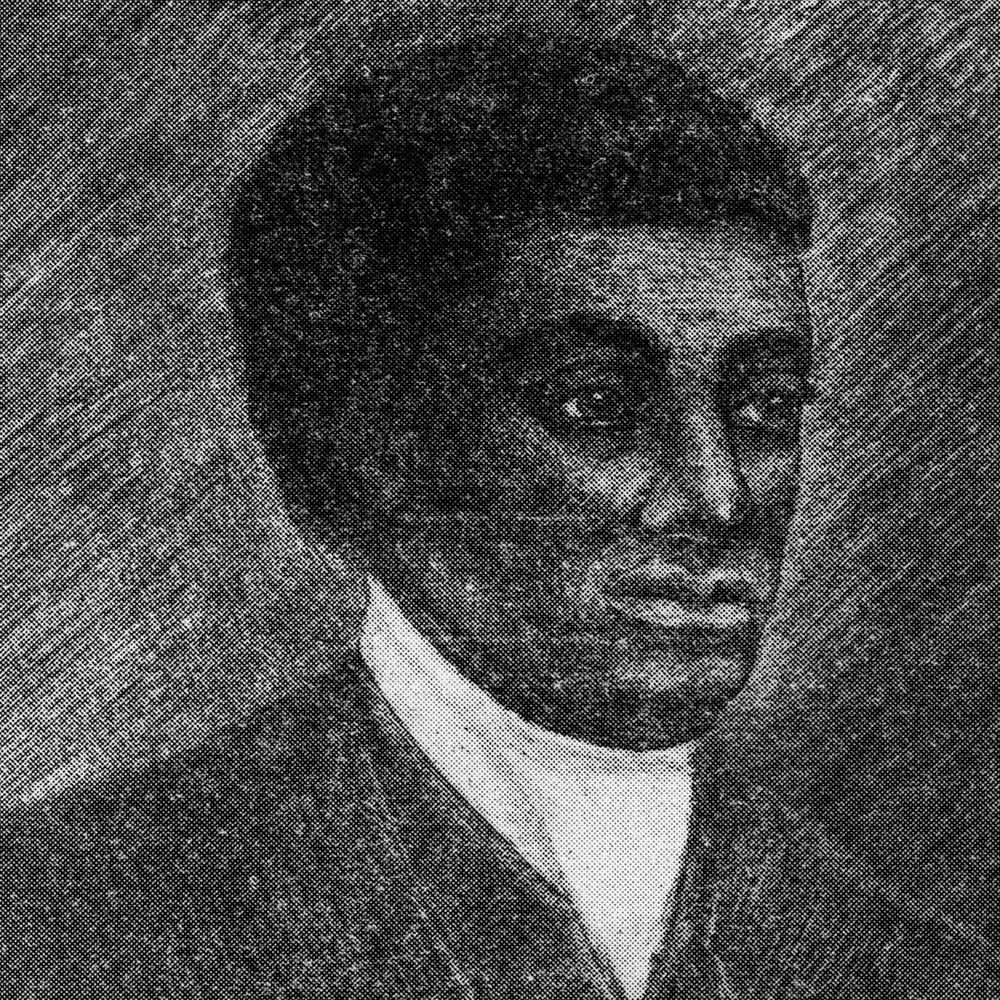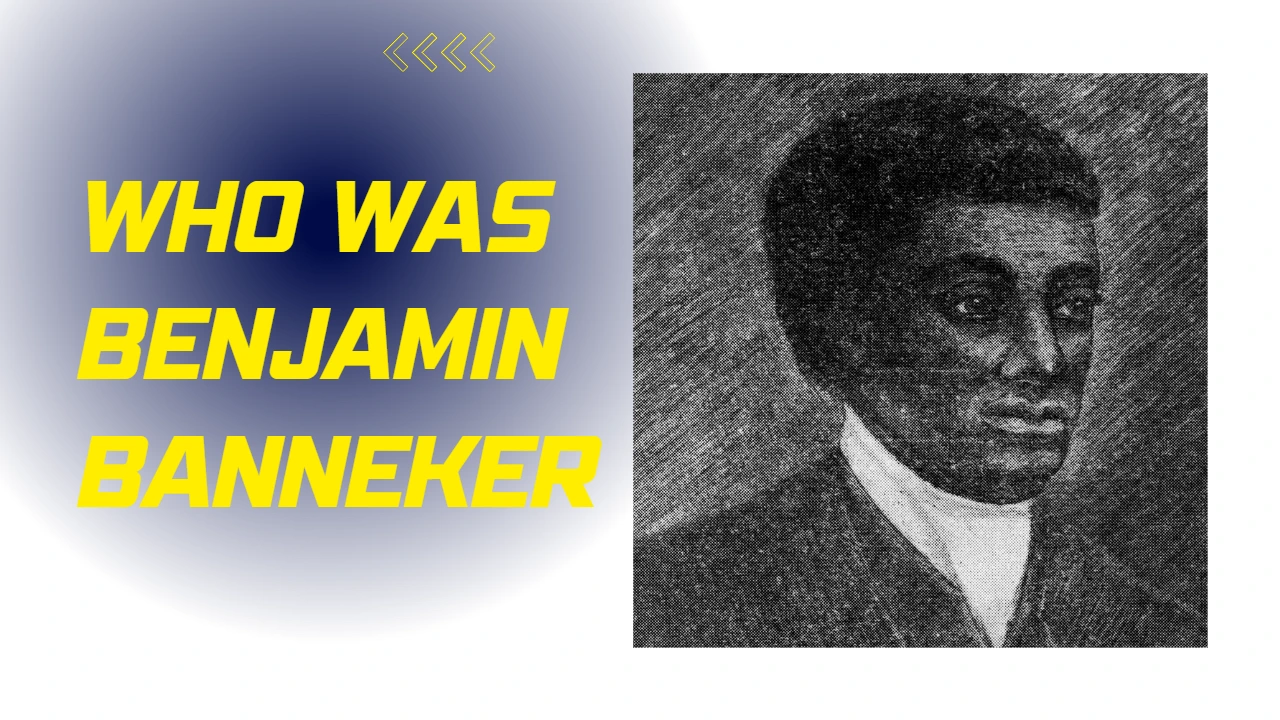Benjamin Banneker was an American mathematician, astronomer, and author who lived from 1731 to 1806. He was born in Maryland to a family of free African Americans, and despite having little formal education, he taught himself mathematics and astronomy and became well-known for his almanacs and scientific writings. Banneker was also a strong advocate for racial equality and used his knowledge and writing to challenge the institution of slavery. He is considered one of the leading figures of early African American history and is remembered for his contributions to science and his fight for social justice.
Benjamin Banneker Early Life
Benjamin Banneker was born on November 9, 1731, in Baltimore County, Maryland, to a family of free African Americans. His grandmother, Molly Welsh, was one of the first African American women to arrive in America, having been brought over from Africa as a slave in the late 1600s. Banneker had little formal education but was self-taught and became well-versed in mathematics and astronomy at a young age. Despite the challenges he faced as a person of color in a slave-owning society, Banneker’s exceptional intellect and natural curiosity allowed him to make important contributions to science and to use his writing as a tool for social change.
Benjamin Banneker Was Interested In Which Subject?

Benjamin Banneker was interested in mathematics and astronomy, and he used his knowledge of these subjects to make important contributions to science. He is best known for his almanacs, which were published annually and contained detailed astronomical observations, as well as information about the tides, planting cycles, and weather forecasts. Banneker was also a gifted engineer and was involved in the early planning and construction of Washington D.C. He used his expertise to design and build a wooden clock that continued to run for more than 50 years, demonstrating his mastery of the mechanics of timekeeping. In addition to his scientific pursuits, Banneker was a strong advocate for racial equality and used his writing and influence to challenge the institution of slavery.
Later Life of Benjamin Banneker
After writing the letter to Thomas Jefferson, Benjamin Banneker continued to use his writing and scientific knowledge to challenge the institution of slavery and advocate for racial equality. He continued to publish his almanacs, which were widely read and respected and used his platform to raise awareness about the injustices of slavery. Despite his fame and success, Banneker lived a simple life on his farm in Maryland, where he spent most of his time studying and observing the natural world. He passed away on October 9, 1806, at the age of 74, leaving behind a legacy as a pioneering scientist and a passionate advocate for racial justice. Today, Banneker is remembered as one of the leading figures of early African American history and is celebrated for his contributions to science, mathematics, and astronomy, as well as his efforts to challenge the status quo and promote a more just and equal society.
Benjamin Banneker Born
Benjamin Banneker was born on November 9, 1731, in Baltimore County, Maryland.
Benjamin Banneker Facts
Here are some facts about Benjamin Banneker:
- Banneker was born to a family of free African Americans in Maryland in 1731.
- Despite having little formal education, Banneker was a self-taught mathematician and astronomer who became well-known for his almanacs and scientific writings.
- He was also an accomplished engineer and was involved in the early planning and construction of Washington D.C.
- Banneker was a strong advocate for racial equality and used his writing to challenge the institution of slavery.
- He wrote a famous letter to Thomas Jefferson in 1791 protesting slavery and advocating for racial equality.
- Banneker continued to publish his almanacs and used his platform to raise awareness about the injustices of slavery.
- He passed away on October 9, 1806, at the age of 74, leaving behind a legacy as a pioneering scientist and a passionate advocate for racial justice.
Today, Banneker is remembered as one of the leading figures of early African American history and is celebrated for his contributions to science, mathematics, and astronomy, as well as his efforts to challenge the status quo and promote a more just and equal society.
Benjamin Banneker Quotes
Unfortunately, there are no known quotes directly attributed to Benjamin Banneker. However, his letters and writings offer insight into his beliefs and values, particularly his advocacy for racial equality and his opposition to the institution of slavery.
Benjamin Banneker Clock
Benjamin Banneker was a talented engineer and clockmaker. He is most famous for designing and building a wooden clock that continued to run for more than 50 years. This clock was remarkable not only for its longevity, but also for its accuracy, and it demonstrated Banneker’s mastery of the mechanics of timekeeping. The clock was considered a remarkable feat of engineering for its time and helped establish Banneker’s reputation as a skilled and innovative craftsman. Today, the clock is remembered as a testament to Banneker’s genius and creativity, and it is considered an important artifact of African American history and scientific innovation.
Benjamin Banneker Accomplishments
Here are some of Benjamin Banneker’s accomplishments:
- Banneker was a self-taught mathematician and astronomer who became known for his almanacs, which were widely read and respected for their accuracy and detail.
- He was involved in the early planning and construction of Washington D.C., using his expertise to survey the land and plan the city’s streets and buildings.
- Banneker was a skilled engineer and clockmaker, and he designed and built a wooden clock that continued to run for more than 50 years, demonstrating his mastery of the mechanics of timekeeping.
- Banneker was a passionate advocate for racial equality and used his writing to challenge the institution of slavery. He wrote a famous letter to Thomas Jefferson in 1791 protesting slavery and advocating for racial equality.
- Despite facing significant challenges as a person of color in a slave-owning society, Banneker achieved great success and recognition for his scientific and mathematical abilities, as well as his efforts to promote a more just and equal society.
Today, Banneker is remembered as one of the leading figures of early African American history and is celebrated for his contributions to science, mathematics, and astronomy, as well as his efforts to challenge the status quo and promote a more just and equal society.
Benjamin Banneker Invention
Benjamin Banneker was not known for inventing any specific device or product. However, he was a talented engineer and clockmaker, and he is most famous for designing and building a wooden clock that continued to run for more than 50 years. This clock was a remarkable feat of engineering for its time and demonstrated Banneker’s mastery of the mechanics of timekeeping. In addition to his work as a clockmaker, Banneker was also involved in the early planning and construction of Washington D.C., using his expertise to survey the land and plan the city’s streets and buildings. While Banneker may not have invented any specific products, he made significant contributions to the fields of mathematics, astronomy, engineering, and surveying, and his work has had a lasting impact on these fields and on African American history.
Benjamin Banneker Education
Benjamin Banneker had very little formal education. He was born in Baltimore County, Maryland, in 1731, and was the son of free African American parents. Banneker was primarily self-taught and became interested in mathematics and astronomy at a young age, teaching himself the principles of these subjects through reading and observation.
Despite his lack of formal education, Banneker was widely recognized for his intelligence and expertise, and he became known for his almanacs, which were widely read and respected for their accuracy and detail. Banneker’s success and recognition as a scientist and mathematician despite his lack of formal education is a testament to his natural abilities and drive, and it has inspired generations of people to pursue their own interests and passions despite any obstacles they may face.
Benjamin Banneker Letter Tothomas Jefferson
Benjamin Banneker wrote a famous letter to Thomas Jefferson in 1791 in which he protested the institution of slavery and advocated for racial equality. In the letter, Banneker challenged Jefferson’s beliefs about race and slavery, arguing that all people, regardless of their skin color, are equal in the eyes of God and should be treated as such. He asked Jefferson to use his influence and power to help bring about the end of slavery, and he expressed his hope that one day all people would live in a society free from oppression and inequality.
The letter was an important moment in African American history and a powerful expression of Banneker’s commitment to racial justice and equality. It was widely read and discussed at the time, and it helped to raise awareness of the issue of slavery and to galvanize the abolitionist movement. Today, the letter is remembered as an important artifact of African American history and as a testament to Banneker’s courage and leadership in the fight for racial equality.
What is Benjamin Banneker Famous for?
Benjamin Banneker is famous for several reasons, including:
- He was a self-taught mathematician and astronomer who became known for his almanacs, which were widely read and respected for their accuracy and detail.
- Banneker was involved in the early planning and construction of Washington D.C., using his expertise to survey the land and plan the city’s streets and buildings.
- He was a skilled engineer and clockmaker, and he designed and built a wooden clock that continued to run for more than 50 years, demonstrating his mastery of the mechanics of timekeeping.
- Banneker was a passionate advocate for racial equality and used his writing to challenge the institution of slavery. He wrote a famous letter to Thomas Jefferson in 1791 protesting slavery and advocating for racial equality.
- Despite facing significant challenges as a person of color in a slave-owning society, Banneker achieved great success and recognition for his scientific and mathematical abilities, as well as his efforts to promote a more just and equal society.
Today, Banneker is remembered as one of the leading figures of early African American history and is celebrated for his contributions to science, mathematics, and astronomy, as well as his efforts to challenge the status quo and promote a more just and equal society.
What is Benjamin Banneker’s Real Name?
Benjamin Banneker’s full name was Benjamin Banneker.
Is Benjamin Banneker a Hero?
Whether or not Benjamin Banneker is considered a hero depends on one’s definition of heroism and personal perspective. However, many people consider him to be a hero for the following reasons:
He was a self-taught mathematician and astronomer who achieved great success and recognition in his field despite facing significant challenges as a person of color in a slave-owning society.
Banneker was a passionate advocate for racial equality and used his writing to challenge the institution of slavery, making a powerful statement about the importance of human rights and dignity.
He was involved in the early planning and construction of Washington D.C., using his expertise to survey the land and plan the city’s streets and buildings, making a lasting contribution to the nation’s capital.
Despite the obstacles he faced, Banneker never lost his commitment to justice and equality, and he used his talents and influence to promote a more just and equal society.
For these reasons and more, many people consider Benjamin Banneker to be a hero and an inspiration. He is remembered as one of the leading figures of early African American history and is celebrated for his contributions to science, mathematics, and astronomy, as well as his efforts to challenge the status quo and promote a more just and equal society.
How Did Benjamin Banneker Escape Slavery?
Benjamin Banneker was born into a free African American family in Maryland in 1731. His parents were both of mixed-race ancestry and were freed from slavery several years before his birth. As a result, Banneker was born free and never experienced the horrors of slavery firsthand. Throughout his life, he remained a strong advocate for racial equality and used his writing and public speaking to challenge the institution of slavery and to promote a more just and equal society.
What Does Benjamin Banneker Say About Slavery?
Benjamin Banneker was a passionate advocate for racial equality and used his writing and public speaking to challenge the institution of slavery. In a famous letter to Thomas Jefferson in 1791, Banneker protested slavery and advocated for racial equality, arguing that all people, regardless of their skin color, are equal in the eyes of God and should be treated as such. He asked Jefferson to use his influence and power to help bring about the end of slavery, and he expressed his hope that one day all people would live in a society free from oppression and inequality.
Throughout his life, Banneker continued to speak out against slavery and to promote a more just and equal society. Despite facing significant challenges as a person of color in a slave-owning society, he never lost his commitment to justice and equality, and he used his talents and influence to promote a more just and equal society. Today, Banneker is remembered as one of the leading figures of early African American history and is celebrated for his contributions to science, mathematics, and astronomy, as well as his efforts to challenge the status quo and promote a more just and equal society.
What Problems Did Benjamin Banneker Face?
Benjamin Banneker faced a number of significant challenges and obstacles throughout his life, including:
- Racism and discrimination: Banneker lived in a time when people of color faced widespread discrimination and prejudice, and he faced significant obstacles and obstacles as a result of his race.
- Limited access to education: As a young man, Banneker faced significant obstacles in accessing the education he needed to pursue his interests in science and mathematics, as most schools and universities were closed to people of color.
- Social and economic barriers: Banneker faced significant social and economic barriers as a person of color in a slave-owning society, and he struggled to gain recognition and support for his work and ideas.
- Political opposition: Banneker was a passionate advocate for racial equality and used his writing and public speaking to challenge the institution of slavery and promote a more just and equal society. As a result, he faced opposition and criticism from those who opposed his views, including many political and social leaders of his time.
Despite these challenges, Banneker was able to overcome them and achieve great success and recognition in his field. He is remembered as one of the leading figures of early African American history and is celebrated for his contributions to science, mathematics, and astronomy, as well as his efforts to challenge the status quo and promote a more just and equal society.
Why Did Benjamin Banneker Invent The Clock?
Benjamin Banneker is credited with building the first clock in the United States that was made entirely from wooden parts. He built this clock as a demonstration of his knowledge and skill in mathematics and mechanics, and it was designed to run without winding for several days.
The clock was seen as a remarkable accomplishment for several reasons. At the time, most clocks were imported from Europe and were made from metal parts, so Banneker’s wooden clock was a unique and innovative design. Additionally, the accuracy and reliability of the clock were a testament to Banneker’s knowledge of mathematics and mechanics, and it helped to establish him as a respected scientist and inventor.
Banneker’s clock also served as a symbol of his commitment to promoting a more just and equal society. By demonstrating his abilities as a scientist and inventor, he was able to challenge the commonly held belief that people of color were intellectually inferior to white people, and he used his clock as a way to promote racial equality and challenge the status quo.
Who Did Benjamin Banneker Inspire?
Benjamin Banneker has inspired many people throughout history, particularly in the fields of science, mathematics, and astronomy. As a self-taught mathematician and astronomer, Banneker challenged the common belief that people of color were intellectually inferior to white people, and he helped to lay the foundations for a more inclusive and equitable society.
In particular, Banneker’s work and ideas have inspired many African Americans and people of color who have followed in his footsteps, and he is often celebrated as a pioneer and trailblazer in the fields of science and mathematics. His contributions have also been acknowledged and appreciated by historians and scholars, who recognize the important role that he played in shaping early American history and culture.
More broadly, Banneker’s life and work continue to inspire people around the world who are committed to promoting social justice and equality, and who seek to challenge the status quo and work toward a more inclusive and equitable society. His legacy continues to live on and his achievements remain a source of inspiration and pride for people of all races and backgrounds.
- Discover the Life-Changing Wisdom of Kristina Jones
- Zac Brown and Wife Kelly Yazdi Announce Separation
- Unveiling the Remarkable Life and Legacy of Mary Todd Lincoln
- Baseball Player Allergic to Chocolate: A Curious Ailment
- Ethan Slater – A Talented Entertainer Making Waves in Hollywood
- Leon Bailey: The Rising Star Lighting Up the Football World
- Frederic Forrest: A Versatile Actor with an Enduring Legacy
- Devon Larratt: The Phenomenal Arm Wrestling Champion
- Julian Sands: A Versatile Actor with Timeless Charm
- Kim Petras: The Sensational Rise of a Pop Icon














